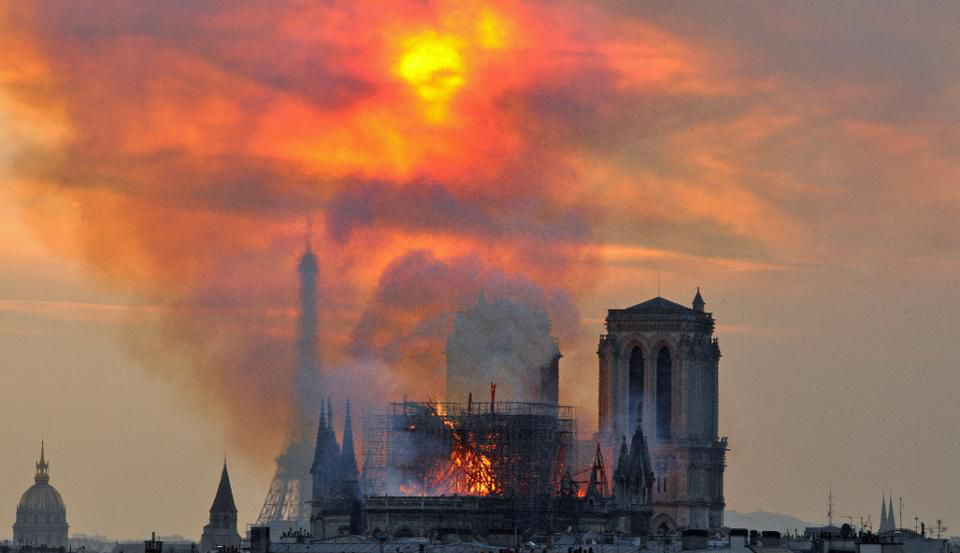Kerby Anderson
While I was doing a radio program, news outlets were reporting that the Cathedral of Notre Dame was burning. My producer asked if we wanted to start covering it. Since I already had guests on the program, I suggested we wait and see if it was an accident or an attack. His response was that never occurred to him.
So, you may wonder, what is wrong with me that I would consider the possibility that the fire might have been deliberately set? Perhaps it was the fact that nearly 2,000 houses of worship in France have been desecrated in the last two years. Mind you, I said 2,000 not 500 and not 200.
You may not have heard this. In fact, whenever some expert being interviewed about the fire at Notre Dame brought this up, interviewers changed the subject or stopped the interview. They might have felt the comments were off-target since the fire was an accident. More likely, they probably didn’t want to do anything that might incite an anti-Muslim response.
The fact remains that various churches and other houses of worship have been attacked on an average of two a day. Raymond Ibrahim (Gatestone Institute) explains that the “authorities and media obfuscate the identity of the vandals.” Even when they identify the attacker as a Muslim or migrant, the media presents the attacker as suffering from mental health issues.
This so-called “code of silence” by the French media has developed because of a desire to avoid blaming migrants or other French Muslims. And it is fair to say that groups other than Muslims may have been responsible for some of these attacks. But Raymond Ibrahim says you can read police reports about altars being smashed and Bibles set on fire while doors are smeared with Islamic expressions like “Allahu Akbar.” These leave little doubt about the perpetrators.
Perhaps now you can see why I waited to obtain more information about the fire at Notre Dame.
 Listen Online
Listen Online Watch Online
Watch Online Find a Station in Your Area
Find a Station in Your Area











 Listen Now
Listen Now Watch Online
Watch Online
